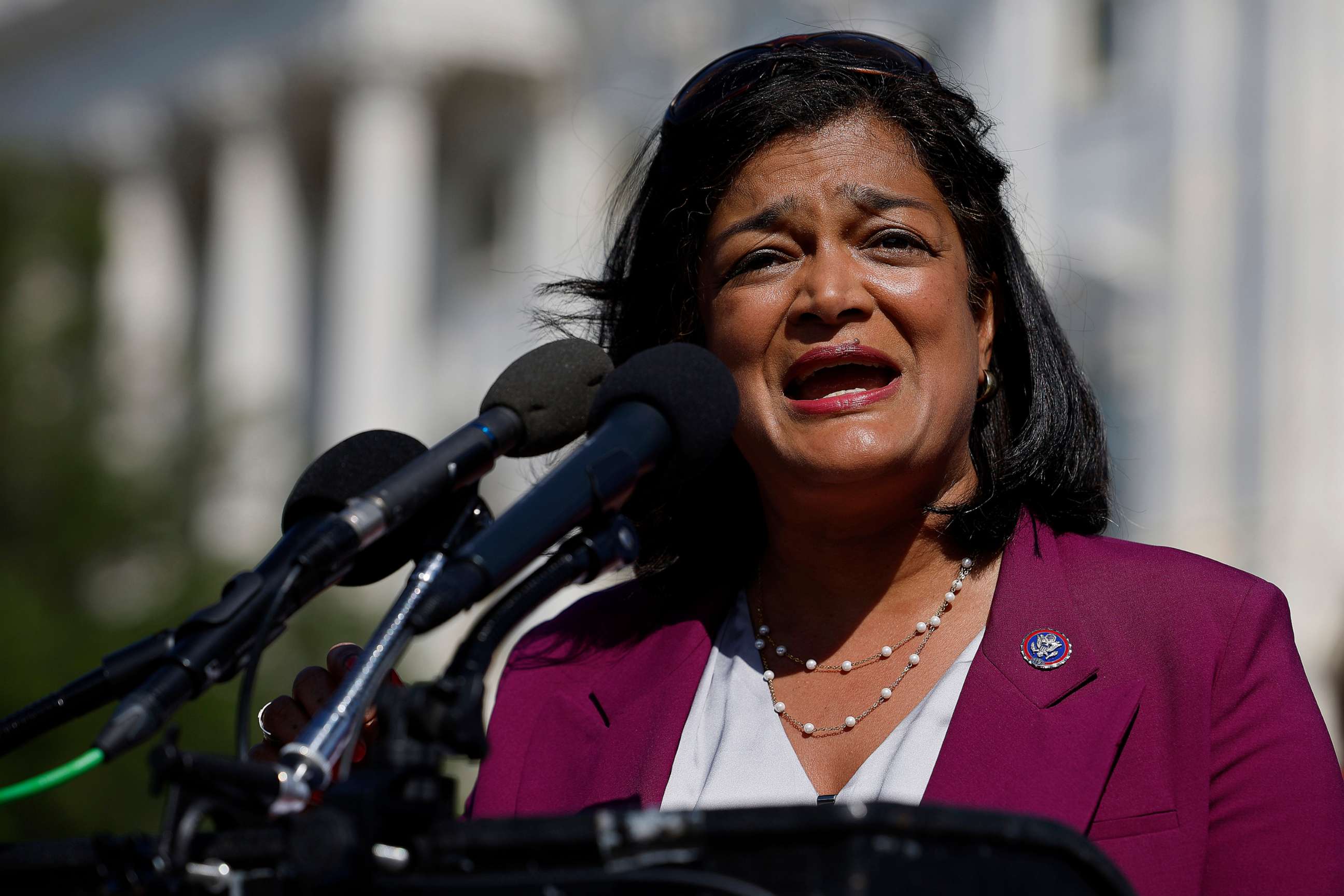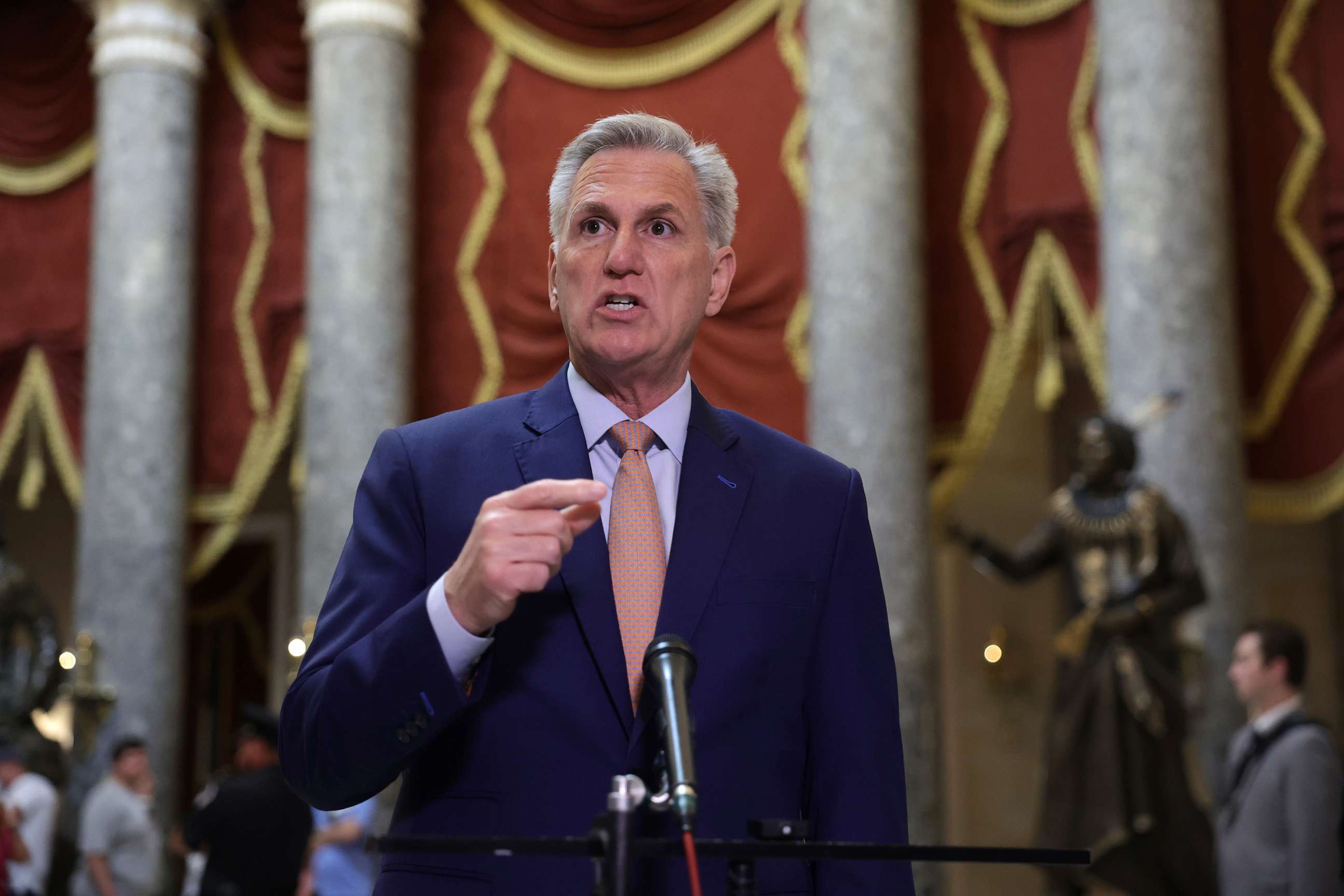Progressive Democrats draw sharp criticism ahead of Israeli president's visit
"It has got to stop," Speaker McCarthy said criticizing Rep. Jayapal's remarks.
Israeli President Isaac Herzog's visit to the U.S. this week is causing some controversy -- with House Speak Kevin McCarthy as well as Democratic leaders and the White House strongly criticizing recent remarks from progressive Democrats.
Herzog will meet with President Joe Biden on Tuesday and address a joint meeting of Congress on Wednesday to mark the 75th anniversary of Israel's statehood.
Several progressive Democrats signaled they plan to boycott the address, though Herzog's otherwise expected to receive a largely bipartisan welcome. Rep. Ilhan Omar, D-Minn., said last week there was "no way in hell" she would be in attendance.
The rifts in the Democratic Party when it comes to Israel became apparent this weekend after Rep. Pramila Jayapal, the chair of the Congressional Progressive Caucus, called Israel a "racist state."
"I want you to know that we have been fighting to make it clear that Israel is a racist state," Jayapal said on Saturday at the Netroots Nation political conference in Chicago. "That the Palestinian people deserve self-determination and autonomy. That the dream of a two-state solution is slipping away from us. That it does not even feel possible."

The comment prompted pushback from both sides of the aisle, including House Democratic leaders, who countered "Israel is not a racist state" and said they were "determined to make sure support for Israel in the Congress remains strongly bipartisan."
"Our commitment to a safe and secure Israel as an invaluable partner, ally and beacon of democracy in the Middle East is ironclad," House Minority Leader Hakeem Jeffries and Reps. Katherine Clark, Pete Aguilar and Ted Lieu said in a statement.
Jayapal walked the remark back in a lengthy statement on Sunday, in which she said she's long supported the two-state solution but is opposed to Prime Minister Benjamin Netanyahu's push to expand West Bank settlements.
"Words do matter and so it is important that I clarify my statement," Jayapal said, stating the remark was an attempt to "defuse a tense situation" during the panel on which she participated.
"I do not believe the idea of Israel as a nation is racist," Jayapal said. "I do, however, believe that Netanyahu's extreme right-wing government has engaged in discriminatory and outright racist policies and that there are extreme racists driving that policy within the leadership of the current government."
The White House said Monday it was "glad" she apologized for the comment.
"We think an apology was the right thing to do for those comments," spokesman John Kirby told reporters as he previewed Herzog's visit.

But McCarthy said Monday he believed Democrats should do more to address those within their ranks he said were making "antisemitic" remarks. He specifically singled out past statements from Jayapal and Omar as examples.
"It has got to stop," McCarthy said. "These are all individuals in the Democratic conference, do they think Israel is an evil state? Well if they believe differently, they should take action against their own for the comments coming from their leadership within their own Democratic Party and that's wrong."
McCarthy, who led a bipartisan trip to Israel in May, called the nation our "closest ally."



